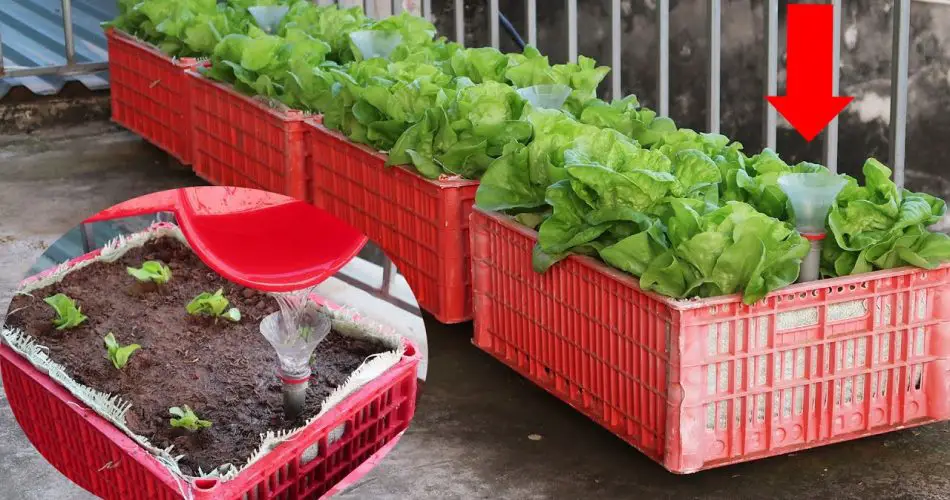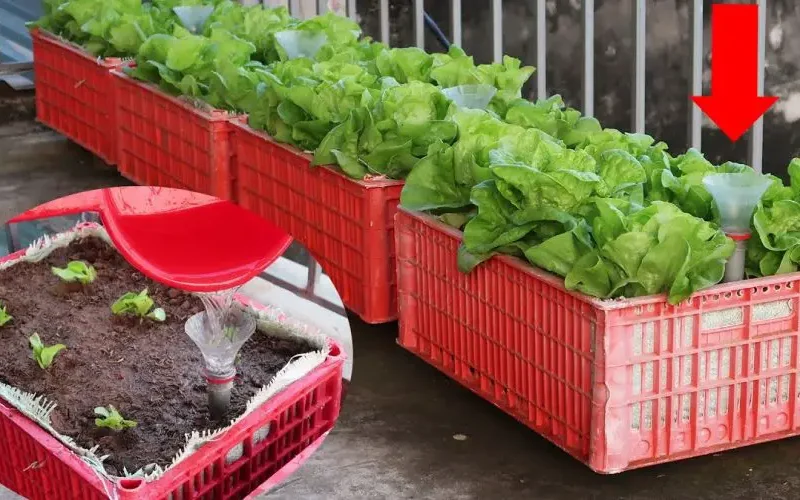
- Consider Seasonal Variability: While lettuce can thrive year-round, certain varieties may perform better during specific seasons. Research the optimal varieties for your region’s climate and adjust your planting schedule accordingly to maximize your yield.
- Provide Adequate Support: Ensure that your rooftop structure can withstand the weight of your containers or raised beds, especially when they are filled with soil and water. You may need to reinforce the rooftop or use lighter materials for your gardening setup to prevent any structural damage.
- Optimize Space: Utilize vertical gardening techniques such as stacking containers or utilizing hanging planters to make the most of your rooftop space. This allows you to grow more lettuce while minimizing the footprint on your rooftop.
- Maintain Consistent Moisture Levels: Install a drip irrigation system or self-watering containers to ensure that your lettuce plants receive consistent moisture, particularly during periods of hot weather. This helps prevent stress-induced bolting (premature flowering) and ensures steady growth.
- Monitor Temperature and Ventilation: Rooftops can experience higher temperatures compared to ground-level gardens, especially in urban areas. Provide adequate ventilation to prevent heat stress, and consider shading your lettuce plants during peak sunlight hours to prevent wilting and bolting.
- Practice Succession Planting: Extend your harvest season by staggering your planting dates or sowing new seeds every few weeks. This ensures a continuous supply of fresh lettuce throughout the growing season, rather than a single large harvest.
- Mulch for Moisture Retention: Apply a layer of organic mulch such as straw or shredded leaves around your lettuce plants to help retain soil moisture, suppress weeds, and regulate soil temperature. Mulching also improves soil structure and encourages earthworm activity.
- Support Pollinators: Encourage pollinators such as bees and butterflies to visit your rooftop garden by planting companion flowers such as marigolds, lavender, or cosmos. Pollinators play a crucial role in lettuce seed production and overall garden health.
- Practice Companion Planting: Companion planting can help deter pests and promote overall plant health. Consider planting aromatic herbs like basil, cilantro, or mint alongside your lettuce to repel pests such as aphids and attract beneficial insects.
- Share Your Harvest: Spread the joy of rooftop gardening by sharing your surplus lettuce with neighbors, friends, or local community organizations. Not only does this foster a sense of community, but it also reduces food waste and promotes healthy eating habits.
By implementing these additional tips, you can enhance the success and sustainability of your rooftop lettuce garden while enjoying a bountiful harvest of fresh, nutrient-rich greens for your family meals. Happy gardening!
